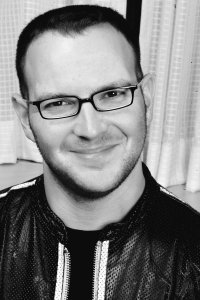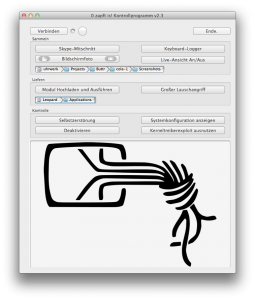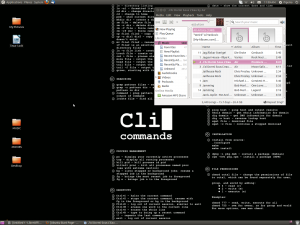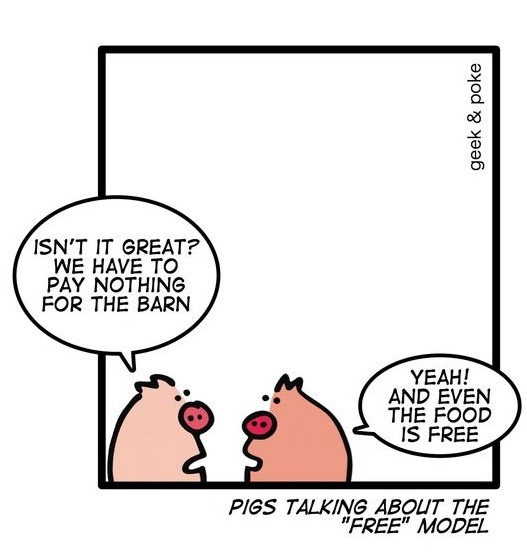Archive
The “Free” Model
Getting ready for 28C3
 The preparations for the upcoming 28th Chaos Communication Congress are under way, the content team scheduling the 4 days congress plan, examining and extracting the presentation submissions. The pre-sale ticket system can be found on presale.events.ccc.de and reduced train tickets ordered at the Deutsche Bahn Website.
The preparations for the upcoming 28th Chaos Communication Congress are under way, the content team scheduling the 4 days congress plan, examining and extracting the presentation submissions. The pre-sale ticket system can be found on presale.events.ccc.de and reduced train tickets ordered at the Deutsche Bahn Website.
Find further information on the CCC events blog
It’s time to stop talking about copyright
 Cory Doctorow: It’s Time to Stop Talking About Copyright
Cory Doctorow: It’s Time to Stop Talking About Copyright
“The story of modern Internet regulation and copyright goes back (at least) to 1995 and Al Gore’s National Information Infrastructure hearings, where Bruce Lehman, Bill Clinton’s copyright czar, pushed for expansive new copyright rules for the net. These proposals were pretty bonkers, so Gore sent him packing, and he scurried off to Geneva, to the UN’s World Intellectual Property Organization, where he instigated the WIPO Copyright Treaty, which became US law in 1998, as the Digital Millennium Copyright Act.
We’ve been arguing about copyright and the Internet for at least 16 years now, and the arguments keep going back and forth over well-defined ground, wearing deep grooves in the discourse.
But a funny thing happened on the way to the 21st century: copyright policy ceased to exist. Because every copyright policy that we make has a seismic effect on the Internet, and because you can’t regulate copying without regulating the Internet.” […]
Richard Stallman’s talk at ETHZ
 This evening Richard Stallman was giving a talk at the ETHZ. It was nice to see how the lecture hall was filled with young ICT students and hackers. Richard started his talk by saying that if anybody wants to record the talk or take pictures should publish it only by using free formats, such as ogg. – Well he’s substantially right by saying this. I was just wondering why it has to be said, as I think it’s self-evident.
This evening Richard Stallman was giving a talk at the ETHZ. It was nice to see how the lecture hall was filled with young ICT students and hackers. Richard started his talk by saying that if anybody wants to record the talk or take pictures should publish it only by using free formats, such as ogg. – Well he’s substantially right by saying this. I was just wondering why it has to be said, as I think it’s self-evident.
It appears that even one of the most respected education institutes, such as the ETHZ, does not take Freedom for granted. And there lies the socio-political deception: Governments and regulation authorities have pushed surveillance and media control as far as we’re accepting debates about freedom to be discussed in mediocre circles. People using GNU/Linux are seen as outcast, rebels and extremists. – Though freedom ought to be one of the most basic principles of humankind!
There’s a massive lack of intellectuals and authors, interfering into the public political and cultural debates, as it has become difficult to avoid the mass media and, – therefore, – disinformation. The economical thirst for growth managed to incorporate writers and readers to subordinate their belief for the sake of media-control. Academics and brains subordinated with self-absorbed researches, funded by lobbyists and obscure organisations, to abandon their principles of liberty and freedom.
At the shift from information society to knowledge society, it’s not enough to just present the four freedoms of Free Software to the tomorrows system administrators and technoly adepts. Richard might be substantially right in his exposure of the principles of free software, while “Big Brother“, – as he calls it, – has ever since found new means of control. (Which are implemented into the todays information technology structures, without letting users know. Whereafter a large part of society argues “I’ve nothing to hide”!)
Richard seems to have become “commensurable” to a large audience, without being contradicted, without disruptive moments and “Etat de Siege“, which are needed to shake the public. – Literally!
Humankind has to understand that the dialectic rapidly has to change and that we’re not willing to be instrumentalised by capitalism. Culture is defined by self-determination, innovation, transparency, freedom and human rights. Richard, the whole free software and civil liberty society have to take the step to the next level and start to take back, 0wn and rule this planet!
[Update]
Politischer Paradigmenwechsel
 Sozialpolitisch ist das ja sehr interessant, dass Piratenparteien und Autonome den Staat an das Recht und die Verfassung erinnern müssen!
Sozialpolitisch ist das ja sehr interessant, dass Piratenparteien und Autonome den Staat an das Recht und die Verfassung erinnern müssen!
Im Klartext muss die Rede lauten:
Entspricht der “Staatstrojaner” den technischen Einschränkungen, welche vom Bundesverfassungsgericht vorgegeben wurden und wer trägt die Verantwortung dafür? Sind diese Einschränkungen in leicht oder grob fahrlässiger Weise übertreten worden und falls ja muss die Instanz, welche dafür haftet, zur ganzheitlichen Verantwortung gezogen werden.
Minister müssen zurücktreten, Regierungen ersetzt werden.
[Update 16. Oktober 2011]
Christopher Lauer schreibt “Überwachung unverzüglich stoppen, Quellcode offenlegen”
Christian Sickendieck schreibt “Der Verfassungsbruchminister”
CVE-2011-3230
Blackboards in Pr0n
 Watch the image closely. – No! Not the stockings, stupid! THE BLACKBOARD!
Watch the image closely. – No! Not the stockings, stupid! THE BLACKBOARD!
Trigonometry in Pr0n:
Compound Angle Formulaesin (A + B)
= sin A cos B + cos A sin Bcos (A + B)
= cos A cos B - sin A sin Btan (A + B)
= tan A + tan B
1 - Tan A Tan B
The blog “Blackboards in Porn” is just hilarious!
Neutrinos faster than c
“OPERA experiment reports anomaly in flight time of neutrinos from CERN to Gran Sasso”
[…] The OPERA result is based on the observation of over 15000 neutrino events measured at Gran Sasso, and appears to indicate that the neutrinos travel at a velocity 20 parts per million above the speed of light, nature’s cosmic speed limit. Given the potential far-reaching consequences of such a result, independent measurements are needed before the effect can either be refuted or firmly established. This is why the OPERA collaboration has decided to open the result to broader scrutiny. […]
Press release by CERN
Arxiv.org release
Slashdot thread
[Update]
“We don’t serve faster than light neutrinos in here” says the bartender. A neutrino walks into a bar.
The looks
 In the past week I practically bullied all my friends into reading the first post about the Linux experience and to my surprise, it did trigger a certain wonder in the non-nerd community that I know. The biggest curiosity had to do with its looks. I felt like trying to describe someone for a blind date… “Is not so boring! Seriously, it looks really good”, “No, I know you are not a computer person but I’m telling you, it changed its appearance completely and it looks amazing now”. This was actually the thing I was most surprised about when I first interacted with my Ubuntu interface, cause it’s really intuitive and friendly to the eye. Almost all of its software has a resemblance to one that we are familiar with already (Libre Office to Word, Banshee to iTunes, GIMP to Photoshop and so on). Most people think of Linux in the same way I did: is not for me cause I’m an “average” user, it’s the OS for programmers. That may have been the case some years ago, but now even a blond girl (hey that’s me!) can find her way around it without feeling hopeless or lost in an unfamiliar environment. However, the success of a blind date doesn’t have to do only with looks, because the important things usually transcend the limits of what’s visible to the eye. The open nature of this operating system makes all the difference in the world, and even if we are not familiar with the technicalities of it, even if we don’t understand how Linux is better than other OS because on the surface it “looks” the same and we are not particularly turned on by the cleanliness of the processes running in the back-end, we should try to be aware of the social and political implications of our daily choices and own those choices rather than let others decide for us.
In the past week I practically bullied all my friends into reading the first post about the Linux experience and to my surprise, it did trigger a certain wonder in the non-nerd community that I know. The biggest curiosity had to do with its looks. I felt like trying to describe someone for a blind date… “Is not so boring! Seriously, it looks really good”, “No, I know you are not a computer person but I’m telling you, it changed its appearance completely and it looks amazing now”. This was actually the thing I was most surprised about when I first interacted with my Ubuntu interface, cause it’s really intuitive and friendly to the eye. Almost all of its software has a resemblance to one that we are familiar with already (Libre Office to Word, Banshee to iTunes, GIMP to Photoshop and so on). Most people think of Linux in the same way I did: is not for me cause I’m an “average” user, it’s the OS for programmers. That may have been the case some years ago, but now even a blond girl (hey that’s me!) can find her way around it without feeling hopeless or lost in an unfamiliar environment. However, the success of a blind date doesn’t have to do only with looks, because the important things usually transcend the limits of what’s visible to the eye. The open nature of this operating system makes all the difference in the world, and even if we are not familiar with the technicalities of it, even if we don’t understand how Linux is better than other OS because on the surface it “looks” the same and we are not particularly turned on by the cleanliness of the processes running in the back-end, we should try to be aware of the social and political implications of our daily choices and own those choices rather than let others decide for us.
